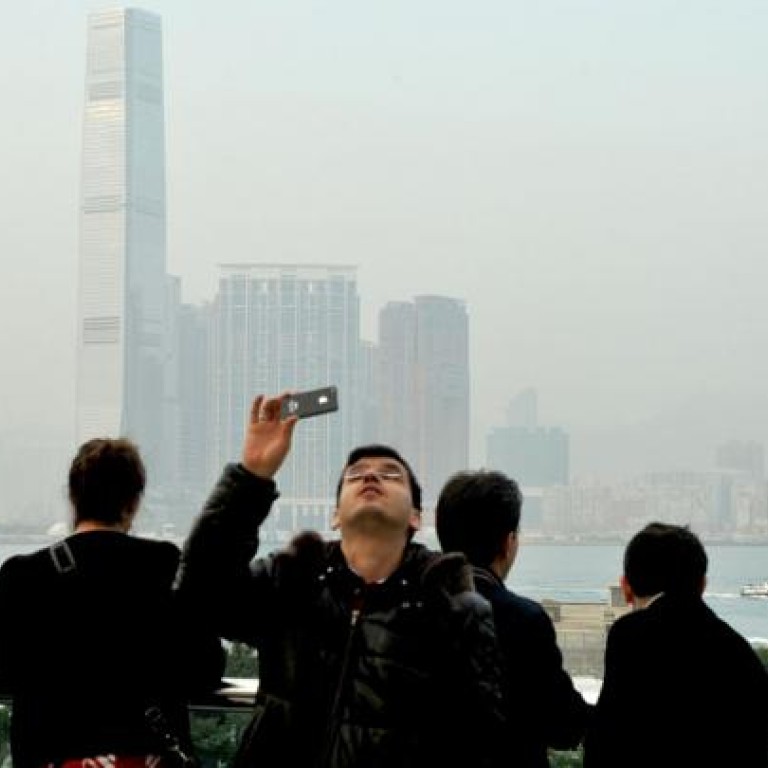
Time to revisit the so-called benefits of tourism
Little of the spending by tourists on shopping and travel goes into pockets of city residents
Let's be glad that a three-legged stool offers as secure a perch as a four-legged one. It wouldn't be wise to put much weight on Mr Tien's fourth of tourism.
We shall start with his claim that tourism receipts amounted to HK$263 billion last year. From this we can immediately deduct HK$52 billion in international transport costs for tourists. We, the people of Hong Kong, own no airlines, passenger ships or cross-border bus companies and we do not get any of this money.
I remind you here that Cathay Pacific Airways is not Hong Kong's airline - it is the Swire Group's airline. Mainland corporate interests also have a stake in it but the Hong Kong government does not and I would be surprised if Hong Kong residents owned more than 10 per cent of the beneficial interest.
You might say that we benefit from spending on air tickets through our airport revenues but here is the airport's dark little secret for you: it only just breaks even on air operations. All of its earnings really come from the shopping mall and other commercial operations.
Thus, if we are going to talk up tourist shopping, let's remember that we have already assigned a good whack of it to pumping up the numbers at the airport. We have to make the airport's finances look better as we now face a HK$136 billion bill for construction of a third runway, thanks to the way tourism has clogged it.
But let's examine the impact of that tourist shopping a little more closely. How much of what tourists buy is made in Hong Kong?
That's right. Put the tips of your thumb and forefinger together to create a circle. None of it is made in Hong Kong and the rules of totting up tourism's contribution to the economy, say you, must then deduct the costs of the relevant imports. There goes the bulk of the HK$133 billion spent by tourists in our shops last year. We cannot count it as a tourism benefit.
What is left after taking out this import cost is mostly eaten up by shop rents, which means a small number of large corporate landlords as they own all the key locations to which tourists go. The tourist shop owners themselves still make some money, of course, but much of it goes to the foreign franchise owners of the imported goods the tourists buy.
Then finally we get what is probably the smallest component - the wages of the shop clerks. These wages are low and the jobs menial and boring. That's why they are increasingly held by migrant workers. Once again the money just goes back out again.
In short, all this tourism shopping provides only a meagre real contribution to the economy and most of what it does bring comes to the hands of a rich few. I cannot put exact numbers on this but I can say that the net effect is to widen income polarity and hold back our work force from more worthwhile jobs.
The same holds true for the hotels, tours and other entertainment on which tourists also spend some money. These are mostly businesses of highly concentrated profits, menial low-paid labour and little net contribution to the economy.
And now think of the costs. Not only do we have to consider building that horrendously costly third runway much earlier than we might otherwise have been forced to do but we now also face strains on road and rail connections. More billions of dollars of public money will have to spent here as well.
And how do we work out the cost to residents of new towns like Sheung Shui of having to go to Sha Tin for shopping because their shops at home have all been taken up by parallel traders or are otherwise devoted to mainland visitors?
I lose too, so do you, when every second shop on Nathan Road or much of Tsim Sha Tsui sells only clunky, gaudy jewellery for the newly and questionably rich across the border.
The point I want to highlight, however, is not just that tourism is now causing social strains but that it has never really done all that much to contribute to our prosperity anyway.

